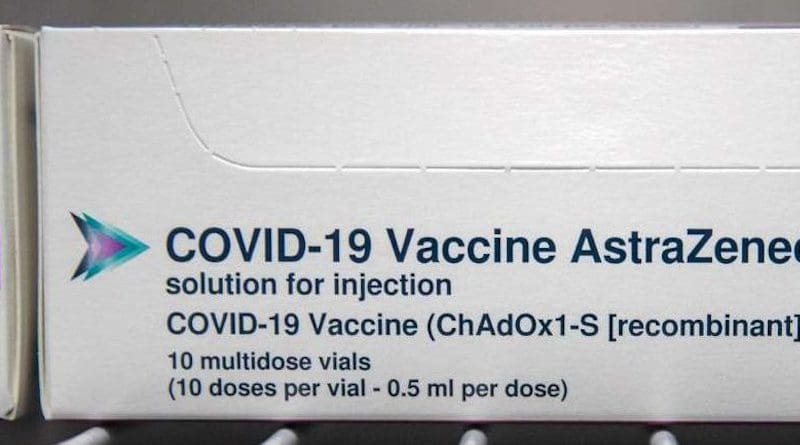Secrecy And Calamity In Australia’s Vaccine Rollout – OpEd
With a lamentable, even disgraceful vaccination rate, confusion over how best to deal with the AstraZeneca supply, vague promises about the arrival of other COVID-19 vaccines, and a degree of complacency, half of Australia found itself in lockdown conditions earlier this month.
A good deal of this was occasioned by an outbreak in Australia’s largest city in June, which saw the state of New South Wales become the last bastion to yield to the lockdown formula. For the duration of the pandemic, the state government saw the blunt approach as unnecessarily harsh to residents, preferring to rely on fabled common sense. We, the argument went, were different. Business and commerce could be left in peace, bar some tinkering on matters of social distancing.
But common sense and wily viruses do not necessarily go hand in hand; and the Delta variant of COVID-19 is proving more than a match for public health authorities. It began with an airport driver in Sydney, who caught the strain from flight crew from the US. Infections ballooned, helped along by a gathering at a birthday party of around 40 people, one of whom had unknowingly crossed paths with the driver. Those not infected turned out to be the ones who were vaccinated.
While the critics have been, and will be noisy about the tardy reaction of the Berejiklian government in NSW, nothing can take away the dunce status accorded to the Commonwealth, whose primary responsibilities on quarantine and public health have been forfeited. This monumental debacle, a product of smugness and contentment, was bound to unfold. The building of specially adapted quarantine facilities to house arrivals from overseas was stubbornly resisted when Australia was essentially free of COVID-19. Hotel-based quarantine, run by the State governments, was deemed more than suitable.
There was also a diabolical lack of vision on purchasing a range of vaccines. All that mattered was the AstraZeneca option, billed as saviour of the nation and intended to give Australia a sovereign capability. Manufacturing it on home soil was celebrated as something visionary. But that was not to be. The roll out has been stuttered, erratic and abysmal. The blood clotting controversy, a risible communications strategy, and a worried public, has left the Morrison government floundering. Other vaccines had to be selected, and supply of these remains woeful. To date, just 7% of Australians are fully vaccinated.
Getting a sense about how profound this floundering could be gathered from the way the government approached the pharmaceutical giants to begin with. What, exactly, was promised by either of the parties? On that score, the Morrison government is keeping mum, as well it might. Secrecy is often the first refuge of the incompetent, and there is much secrecy on the way the Commonwealth has been implementing its vaccine policies.
For one, the entire vaccine supply agreement with AstraZeneca has been stubbornly withheld for reasons of national security, a laughably grim state of affairs. The only thing we have to go on is the letter of intent between the government and the pharmaceutical giant, which was only released because it says nothing at all.
The ABC’s 7.30 program, testing the country’s feeble Freedom of Information laws, sought access to the full agreement on April 12. The answer from one Allison Jones, assistant secretary to the COVID-19 Vaccine Taskforce in the Department of Health, was a typically frail rebuke of the public interest. In refusing access to the agreement, she considered there to be “real and substantial grounds for expecting that [its disclosure] would, or could reasonably be expected to, cause damage to the security of the Commonwealth.” What follows is a dull regurgitation of various definitions of “security” and the “security of the Commonwealth” from various statutes, none of them vaguely applicable to discussing public health. But this technique of irrelevant spray gives us an insight on bureaucratic thought processes: that health priorities fall within the realm of the clandestine.
Jones cites, for instance, the definition under the FOI legislation of “security of the commonwealth”, which is “taken to extend to: (a) matters relating to the detection, prevention or suppression of activities, whether within Australia or outside Australia, subversive of, or hostile to, the interests of the Commonwealth or any other country allied or associated with the Commonwealth”.
The absurd, and irrelevant definition of “security” from the Australian Security and Intelligence Act 1979 (Cth) is also thrown in for good measure. These include everything from espionage to “acts of foreign interference” and “the protection of Australia’s territorial and border integrity from serious threats”.
Few clues were given as to what sort of damage could arise from making the agreement public, other than exposing the government to unalloyed embarrassment. “I consider the particular damage to the security of the Commonwealth to be the fact that disclosure of the information could provide insight into the unique arrangements for the manufacture and supply of the COVID-19 vaccine.” Releasing the details of the contract would signal “to other countries the terms agreed between the Commonwealth and AstraZeneca.” What a frightening prospect.
Bill Bowtell, the architect behind Australia’s response to the HIV/AIDS pandemic, has made a spirited argument for transparency in this regard. “Public health cannot be secret health,” he asserts. “The advice, proceedings and participants of all AZ meetings should be published.” He makes the salient point that the deal has actually compromised national security. And no government wishes their citizens to know that.

